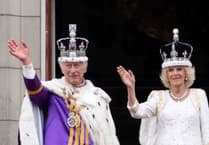Electric buses which were trialled during TT, would cost double the price of the vehicles in use at the moment.
It was recently revealed that each eBus would cost in the region of £500,000, yet the Department of Infrastructure has said that the last purchase prices for single- and double- decker buses ranged from £217,000 to £248,000.
Although the department says as the current buses were bought in 2019, the price would be higher now.
The recent price reveal of the eBuses and the trial that took place in the last two weeks, received criticism from John Wannenburgh, Douglas North MHK, as being ‘virtue signalling of the highest order’.
Whilst the Department of Infrastructure said that the trials were to assess the suitability of the vehicles on the island’s terrain and public transport needs, it also admitted that the infrastructure network would have to be changed drastically.
Ian Bates, head of operations for the department of infrastructure, said: ‘An electric vehicle that may operate well in Liverpool may not operate well here.
‘The capacity at Banks Circus which is obviously where the majority of vehicles are stored, from a service provision point of view, we would struggle to plug two more computers in.
‘To charge three, four, or eight electric buses, would not be possible from an infrastructure point of view at this point in time.
Infrastructure Minister Chris Thomas previously told the Independent: ‘An electric bus route for the island would consume a huge amount of electricity so we would need bigger wires, more capacity and the like.
‘We would have to completely reconfigure the way that we supply electricity to where those buses are working.
‘When you have an electric car, you double the amount of electricity used in that house.
‘So when you have a fleet of 70 buses, it is a huge amount of electricity, and that’s why some people say that electricity may not completely be the future for heavy vehicles like ships and lorries and the like.
‘So we need to look at alternative technologies as well as electricity.’
infrastructure
A spokesperson for the Department of Infrastructure said: ‘The future charging and infrastructure requirements for an electric fleet are unknown at this stage.
‘The DoI aims to gather comprehensive information during these trials to better understand the associated risks and costs of transitioning to alternative fuels.
Whilst the department does not have figures for how much both trials cost, a spokesperson said: ‘In terms of charging the two electric vehicles currently in use, they are charged overnight using a new 45kVA charger.
‘The DoI has paid approximately £1500 for connectivity to charge a large PSV (public service vehicle) through a commando connection. However, the exact costs for usage have not yet been received.’
Mr Wannenburgh thinks there are currently much more pressing matters.
He told Manx Radio: ‘It shouldn’t be considered at the moment, I mean really look around, people are hungry and cold, cost of living is going through the roof, inflation is going through the roof, mortgages are going up and now here we are talking about electric buses.
‘‘We have got so many pressures around today which everybody knows about, but to pay half a million pounds on a bus is obscene.’
‘That’s not to say that in 10 or 15 years’ time, this may be the way forward and they will probably be cheaper but here and now that is absolutely nothing that I would support.’




